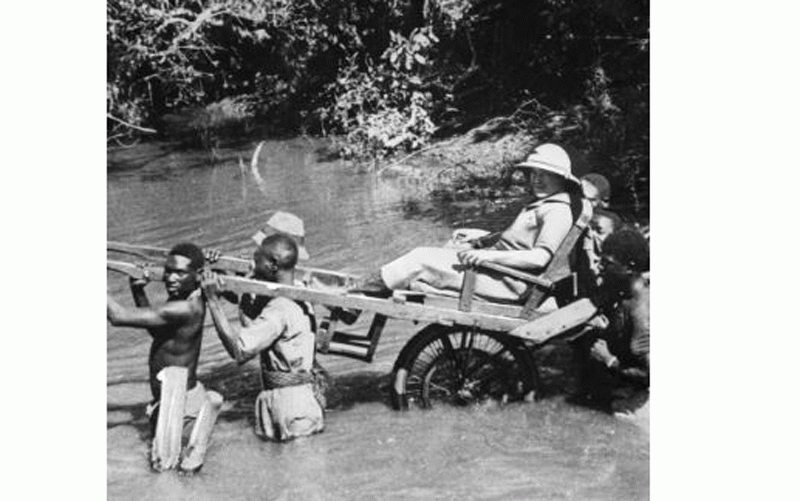
OVER the decades, former colonies and other poor countries have struggled to turn around their economic fortunes, despite some of them possessing abundant of human and natural resources.
In the course of searching for solutions, several challenges have been identified ranging from the remnants of colonialism, neocolonialism, the extractive international financial institutions economic policies on poor countries to imbalanced global trading systems.
In previous instalments, I have attempted to address how money is now a major tool of global political control, whose agency has remained unquestioned adequately. It could be that because the human mindset is now oriented to accept that money is a central solution to everything or that money is innocent.
Few studies that have attempted to unpack the colonial power of money have argued that any effective and practical efforts to attain emancipation, sovereignty and autonomy — the benchmarks required for development — need to start by dismantling from the colonial nature of the current monetary system.
From an international relations perspective, money has taken an imperialistic role. Its function is no longer limited to the storage of value, unit of account or medium of exchange. It is now also a political tool.
Before getting into the details of this argument, it may be relevant to relook at the objectives of colonialism. Colonialism is a political-economic phenomenon, whereby various Western countries invaded, explored, conquered, settled and exploited large areas of the world, including Africa.
The second phase of the purpose of this brutal activity was, among others, economic exploitation of the colony’s natural resources, creation of new markets for the coloniser and extension of the coloniser’s way of life beyond its national borders.
The third phase was to install a global system that enables the continuation of exploitation of former colonies without the physical presence of the coloniser.
- Surface Wilmar in US$50m Olivine revival plan
- Legitimising wrong-doing in the guise of rule of law
- Legitimising wrong-doing in the guise of rule of law
- African leaders dying overseas expose cruel deception of independence
Keep Reading
We can summarise the above into three major outcomes that colonisation sought to achieve, namely to dispossess colonies of their wealth and identity; to displace them from productive capacities; and to perpetually disempower them and foster dependence. The ultimate goal was to create a submissive and dependent being that sees no evil in a system under which it is oppressed. This is exactly what money does to poor society.
If one wants money, they either trade the their capacities, leave what they have for greener pastures or acquire a new professional identity to secure an income. It looks voluntary, but there is a subtle coercion because money is seen as everything. But is it?
Money within the global monetary system has perfectly replaced the physical presence of colonial structures. The adoption of the global monetary system into local and international trading system culminates into the weakening and submission of the local trading systems, thus inhibiting local economic growth possibilities.
It also means human capabilities can only be recognised within the framework of labour trade which is rewarded by a fixed income called a salary or wage. This again inhibits people’s ability to gain more from their capabilities by locking them into the labour-wage system.
For a local currency to make sense, it seems mandatory that it must be pegged against another currency that is accepted as a measure of value in the international monetary system. In our current case, it has to be against the United States dollar.
By definition, an international monetary system is a set of internationally agreed rules, conventions and supporting institutions that facilitate international trade, cross-border investment and generally the reallocation of capital between states that have different currencies.
The current institutions, systems and structures emerged in the mid-1940s coincidentally towards the end of the Second World War, the beginning of wars of independence in Africa and the rise of global governance institutions.
Coincidentally, because it is the same colonial powers that formed the global governance and financial institutions in which the former colonies were co-opted upon attaining independence.
Some scholars have over the decades argued that countries that created the global system, including the international monetary system, did so much more for their benefit than for that of the other countries including colonies.
The international monetary system’s ability to commandeer former colonial financial reserves from their capitals is crucial in enabling them to continue controlling markets and extracting resources. Just to illustrate this, countries with high population of white people outside the western block receive more advantageous treatment than majority non-white former colonies, contributing to their faster economic development.
It does end there. When country breaks rank with the global system, the immediate action by the same global system is to impose sanctions.
Those sanctions are designed to collapse the economy by withdrawing their international currency, cutting trading lines and weakening the local currency and eventually causing the people to turn against their government.
The reason they do this is because the global system is so confident that they have established weak and dependent former colonies. And money is one of the major tools to collapse countries.
The monetary relations between France and some African countries is another example of how money sustain colonialism. Most colonial powers consider currency policy to be a power reserved to themselves and not left to the choice of former colonies.
The colonial powers jealously guarded the prerogatives of former colonies monetary policies and they use the perceived strength of their currency policy to promote imperial ties over other regional ties to countries outside their system of control.
- Tapiwa Gomo is a development consultant based in Pretoria, South Africa. He writes here in his personal capacity.







